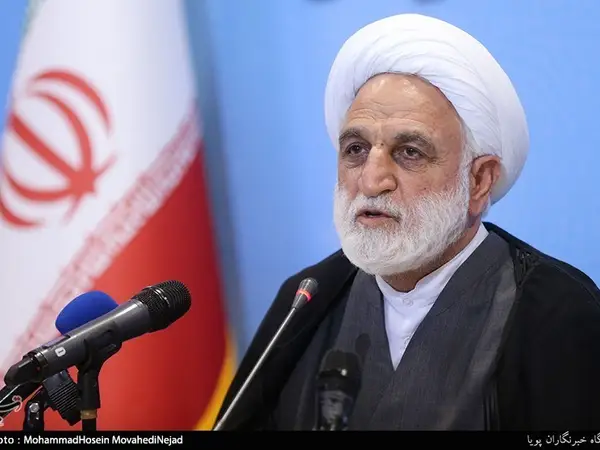In an ominous sign for detained protestors, Islamic Republic’s Chief Justice has called on prosecutors and judges to carry out final sentences without any delay.
In a decree issued on Monday, Gholam-Hossein Mohseni-Ejei demanded a swift process to carry out sentences handed down to those who have indicted on serious charges during three months of unrest.
He did not directly mention capital punishment for detained protesters but said the sentences issued for “serious crimes,” whether or not related to the security of the country, should be well-documented and deterrent.
His remarks can be construed as a signal to judges to go ahead with sentencing more people to death over their participation in the protests that began in mid-September, when 22-year-old Mahsa Amini was killed in custody of hijab enforcement police.
The Islamic Republic has so far executed Mohsen Shekari and Majidreza Rahnavard, both 23, and based on the latest report by the Oslo-based Iran Human Rights Organization, 39 other people are at risk of execution on charges of “war against God” and “corruption on earth.” However, the executions seem to have halted since last week, therefore Ejei’s order can mean the greenlight for further executions.
It can also be seen as a measure to hand down more prison sentences, and carry out more executions to intimidate the population and stifle dissent.
In his 15-point decree, he also called on judicial officials to inform higher authorities in cases deemed sensitive. Ejei also called for coordination with state media and the media center of the judiciary in cases that are important for public opinion.
Last week, Tehran’s judiciary chief Ali Alghasi-Mehr said 400 protesters have been sentenced to prison terms of between 2 to 10 years for participation in Tehran alone. “In hearings on cases of rioters in Tehran province, 160 people were sentenced to between five to 10 years in prison, 80 people to two to five years and 160 people up to two years,” he said.
There are no independent courts in Iran. Both prosecutors and judges answer to the same Judiciary controlled by hardliners. In most political trials, there is no due process of law, no freedom to choose defense lawyers and little access to case files. The Judiciary can frame people for crimes they did not commit, as multiple cases have demonstrated in the past. It can define what “disruption” means and sentence any protester to death for causing an ill-defined act of disruption.
In November, a group of 227 parliament members called on the Judiciary to issue death sentences for people arrested during the ongoing antigovernment protests. As the Islamic Republic is adamant to execute more protesters, some Islamic law experts are voicing opposition to the Judiciary’s interpretation of Sharia.
The US-based Human Rights Activists News Agency (HRANA) announced in its latest report that from September 17 until December 13, at least 493 protestors have been killed, of which at least 68 were minors. While the Islamic Republic has not provided accurate figures of those detained in the recent protests, the watchdog went on to say that at least 18,424 protesters have been arrested including 632 students.
The Washington-based Abdorrahman Boroumand Center for Human Rights in Iran and London-based Amnesty International said in a joint statement in July that at least more than 250 hangings had been confirmed. "If executions continue at this horrifying pace, they will soon surpass the total of 314 cases recorded for the whole of 2021," the groups said.
